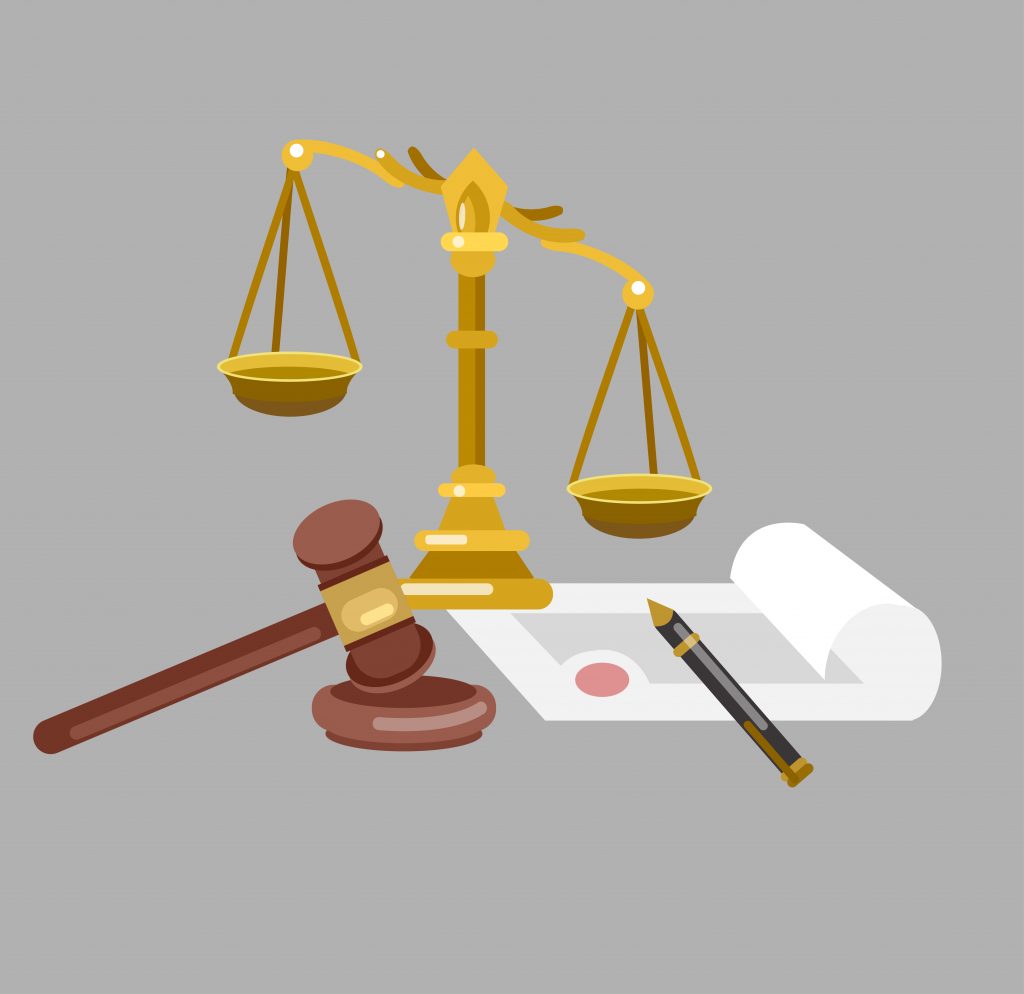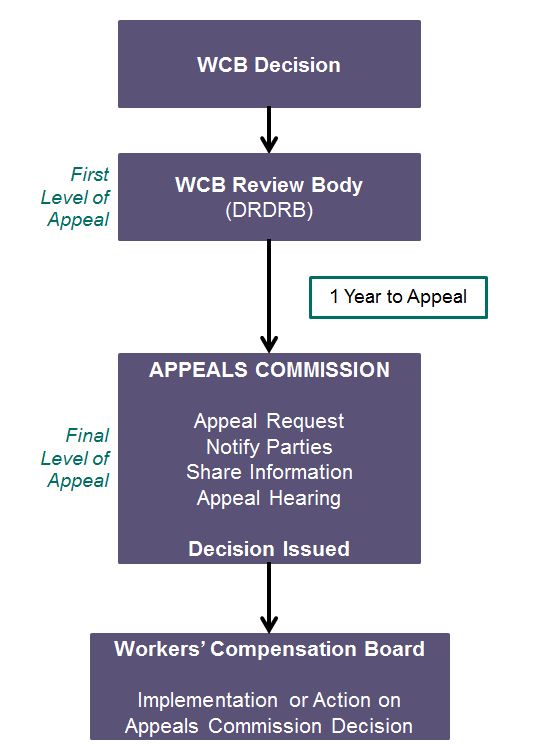Beyond the Dispute Resolution & Decision Review Board: Appeals Commission for Alberta Workers’ Compensation

So the WCB-Alberta has made a decision on an injured worker’s claim and, as the employer, you do not agree with the decision. You have talked to the WCB decision maker, likely a Claim Manager or Claims Adjudicator, without success. You have discussed the issue with a supervisor, have had no luck with the Dispute Resolution and Decision Review Board(DRDRB) and still you are not in agreement with the decision that was made. What can you do now? Is there another level of appeal? Is there a way to get an impartial hearing to voice your grievance?
The WCB Appeals Commission:
The Appeals Commission for Alberta Workers’ Compensation is exactly that. The WCB Appeals Commission (AC) is the final level appeal for decisions made by the DRDRB and the most formal of all levels of appeal. It is a quasi-judicial tribunal established by and operating under the Alberta Workers’ Compensation Act. The AC is considered an entity of the Government of Alberta, separate from the WCB and reports to the Minister of Jobs, Skills, Training and Labour. Appeals are heard by a panel of Appeals Commissioners, consisting of a Hearing Chairperson and at least one other member of the AC.
Who they are:
Unlike the DRDRB, whose members are appointed by the WCB, the Appeals Commissioners are recruited through public competition and appointed by the Lieutenant Governor in Council to represent the interest of employers or the interest of workers. Commissioners come from diverse backgrounds including law, commerce, management, administration, health care, unions and government. To ensure fairness and impartiality, employees and directors of the WCB are prohibited, by law, from being appointed to the AC. The mission of the AC is to provide a timely, fair and independent appeals process consistent with legislation, policy and the principles of natural justice.
The Pre-Filing Process:
In order to access the Appeals Commission, you must:
- Have a written decision from the DRDRB regarding the issue in dispute.
- Submit an appeal in writing to the AC. A Notice of Appeal form is recommended.
- Make sure the appeal is submitted within one year of the date of the DRDRB decision.
Once you have a received a written decision from the DRDRB and feel you want to appeal their decision, reviewing the Practice Guidelines for Filing an Appeal will enable you to present your case clearly and concisely. The more complete and structured your appeal is, the faster and easier the AC can address your concerns. If there is missing information or the appeal is not filed according to guidelines, the appeals process can get delayed.
After you have filed:
After you have successfully filed your appeal, the AC will:
- Contact all parties with a stake in the outcome of the decision.
- Provide all interested parties with an Appeals Document Package (ADP) containing copies of the information that will be used to make the decision.
- Determine how your appeal will be handled, either by
- In-person hearing
- Documentary hearing or
- Telephone conference
- Coordinate a date and time for the appeal that is convenient to all parties.
- Send a written decision on your appeal, complete with the rationale used to come to their conclusion(s).
If, after your appeal is filed, you discover any new and/or additional information that you feel is relevant, it can be still be submitted to the AC prior to the hearing. However, it must be received at least 4 days before the scheduled hearing date or the appeal could be delayed. Referencing the Practice Guidelines for Getting Ready for the Hearing will help make sure that you have completed all the necessary steps required to proceed.
The Hearing Process:
On the day of the hearing, an appeals secretary will greet all parties and escort them to a hearing room, where they will be met by the hearing panel. The panel consists of a hearing chairperson and at least one other appeals commissioner. The hearing chair will explain the hearing procedures, as well as the authorities and responsibilities of the Appeals Commission.
At this point, you will be asked to present your case first. You may be asked and should be ready to respond to questions asked by the hearing panel or any other interested party present. Once you are finished, the other interested party or parties will present their case. Following this, you and the hearing panel will have the opportunity to ask questions. At the end of the hearing, both sides may summarize their presentations for the panel.
The hearing will be adjourned and the panel will then review all the evidence and submissions presented and come to a decision.
The Decision Process:
Following your hearing, a written decision, including the rationale used to reach the decision, is usually completed within 4-6 weeks. Depending on the complexity of the issue under review, a decision could be reached in as little as 1 week. If the panel decides that further information or investigation is necessary the decision may be delayed; if it is going to take longer than 6 weeks, the AC will advise all parties of the extended timeframe.
More detailed information about AC Hearings and Decisions can be found in the Practice Guidelines for Hearings and Decisions.
After the Decision:
Once a decision has been made, the WCB must implement or take action on the decision within 30 days.
Although the AC is the final level of appeal, you may have concerns about the appeals process or rationale used to make the decision or you may have obtained new information or evidence that was not available at the time of the hearing. Under specific circumstances, the AC may accept a reconsideration request, however the guidelines for reconsideration are quite strict. Reviewing the Practice Guidelines for Reconsidering a Decision will help you determine if you have the basis to apply for reconsideration.
Additional Information:
The AC is also available to injured workers that disagree with decisions made on their claims and the appeals process is the same. If an injured worker does proceed with an appeal to the AC, you will be notified and will have the opportunity to present your case at a hearing. Since decisions by the AC have a direct impact on a claim and claim costs, it is always in your best interest to participate in the appeals process and attend hearings.
More detail on the AC can be found here, complete instructions for filing an appeal can be found here and you can access the complete Appeals Rules and Practice Guidelines here.
At all levels of appeal, you may use representation to help you formulate and present your case. Using a representative that is familiar with the WCB and the appeals process can be extremely helpful in making sure that you are fully prepared for your appeal and that your appeal is presented in a clear and cohesive manner.
For further information on employer representation, the Appeals Commission or it’s processes you can contact us via email at [email protected], [email protected], reach us directly, during business hours, using our chat feature or by phone, at 1-844-377-9545 and you can always connect with us on Facebook ,Twitter , or LinkedIn.




